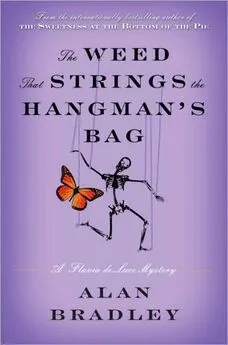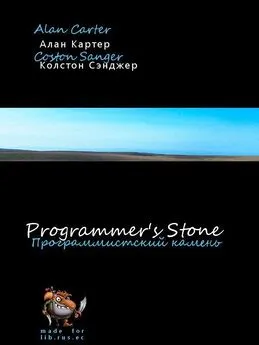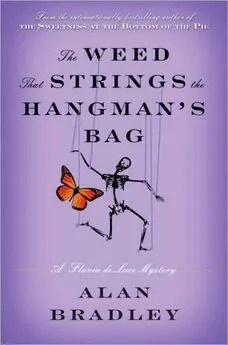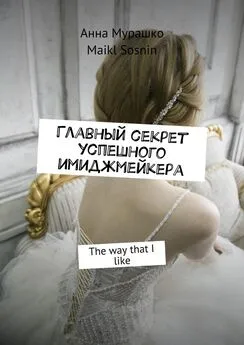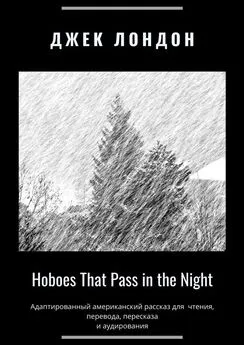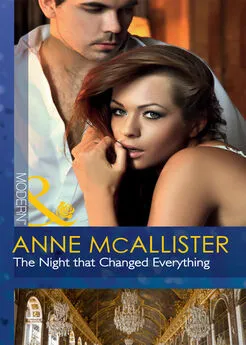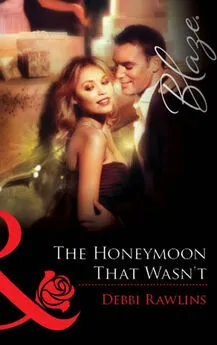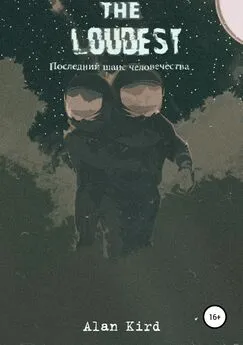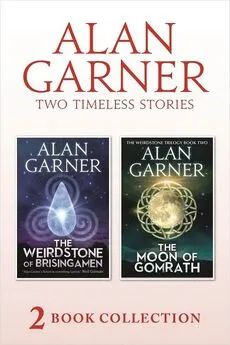Alan Bradley - The Weed That Strings the Hangman's Bag
- Название:The Weed That Strings the Hangman's Bag
- Автор:
- Жанр:
- Издательство:неизвестно
- Год:неизвестен
- ISBN:нет данных
- Рейтинг:
- Избранное:Добавить в избранное
-
Отзывы:
-
Ваша оценка:
Alan Bradley - The Weed That Strings the Hangman's Bag краткое содержание
The Weed That Strings the Hangman's Bag - читать онлайн бесплатно полную версию (весь текст целиком)
Интервал:
Закладка:
"I'll set Rupert on them," she said. "That'll teach them a lesson. Rupert!" she called out loudly. "What are you doing in there?
"I'll bet the lazy sod's crawled back into the sack," she added with a wink.
She reached out and gave one of the guy ropes a twang, and like a parachute spilling the wind, the whole thing collapsed in a mass of slowly subsiding canvas. The tent had been pitched in the loose topsoil of the potter's field, and it crumpled at a touch.
Rupert was out of the wreckage in a flash. He seized Nialla by the wrist and twisted it up behind her back. Her cigarette fell to the grass.
"Don't ever — !" he shouted. "Don't ever — !"
Nialla motioned with her eyes towards me, and Rupert let go of her at once.
"Damn it," he said. "I was shaving. I might have cut my bloody throat."
He stuck out his chin and gave it a sideways hitch, as if he were freeing an invisible collar.
Odd , I thought. He still has all his morning whiskers, and moreover, there's not a trace of shaving cream on his face .
"The die is cast," said the vicar.
He had come humming across the churchyard like a spinning top, showing black and then white through the fog, rubbing his hands together and exclaiming as he came.
"Cynthia has agreed to run up some handbills in the vestry, and we'll have them distributed before lunch. Now then, about breakfast — "
"We've eaten, thanks," Rupert said, jerking a thumb back towards the tent, which now lay neatly folded in the grass. And it was true. A few wisps of smoke were still drifting up from their doused fire. Rupert had fetched a box of wood chips from the back of the van and in surprisingly short order had an admirable campfire crackling away in the churchyard. Next, he had produced a coffeepot, a loaf of bread, and a couple of sharpened sticks to make toast of it. Nialla had even managed to find a pot of Scotch marmalade somewhere in their baggage.
"Are you quite sure?" the vicar asked. "Cynthia said to tell you that if — "
"Quite sure," Rupert said. "We're quite used to — "
" — Making do," Nialla said.
"Yes, well, then," the vicar said, "shall we go in?"
He shepherded us across the grass towards the parish hall, and as he extracted a ring of keys, I turned to look back across the churchyard toward the lych-gate. If someone had been there, they had since run off. A misty graveyard offers an infinite number of places to hide. Someone could well be crouching behind a tombstone not ten feet away, and you'd never know it. With one last apprehensive look at the remnants of the drifting fog, I turned and went inside.
"Well, Flavia, what do you think?"
My breath was taken away. What yesterday had been a bare stage was now an exquisite little puppet theater, and such a one as might have been transported overnight by magic from eighteenth-century Salzburg.
The proscenium opening, which I guessed to be five or six feet wide, was covered with a set of red velvet draperies, richly trimmed and tasseled with gold, and embroidered with the masks of Comedy and Tragedy.
Rupert vanished backstage, and as I watched in awe, a row of footlights, red and green and amber, faded up little by little until the lower half of the curtains was a rich rainbow of velvet.
Beside me, the vicar sucked in his breath as they slowly opened. He clasped his hands in rapture.
"The Magic Kingdom," he breathed.
There, before our eyes, nestled among green hills, was a quaint country cottage, its thatched roof and half-timbered front complete in every detail, from the wooden bench beneath the window right down to the tiny tissue paper roses in the front garden.
For a moment, I wished I lived there: that I could shrink myself and crawl into that perfect little world in which every object seemed to glow as if lit from within. Once settled in the cottage, I would set up a chemical laboratory behind the tiny mullioned windows and —
The spell was broken by the sound of something falling, and a harsh "Damn!" from somewhere up in the blue painted sky.
"Nialla!" Rupert's voice said from behind the curtains. "Where's that hook for the thingumabob?"
"Sorry, Rupert," she called out, and I noticed that she took her time replying, "it must still be in the van. You were going to have it welded, remember?
"It's the thing that holds the giant up," she explained. "But then," she added, grinning at me, "we mustn't give away too many secrets. Takes all the mystery out of things, don't you think?"
Before I could answer, the door at the back of the parish hall opened, and a woman stood silhouetted against the sunlight. It was Cynthia, the vicar's wife.
She made no move to come in, but stood waiting for the vicar to come scurrying to her, which he promptly did. As she awaited his approach, she turned her face away to the outside light and, even from where I stood, I could clearly make out her cold blue eyes.
Her mouth was as pursed as if the lips were pulled tightly shut with drawstrings, and her sparse, gray-blond hair was pulled — painfully, it appeared — into an oval bun at the nape of an exceptionally long neck. In her beige taffeta blouse, mahogany-colored skirt, and brown oxfords, she looked like nothing so much as an over-wound grandfather clock.
Aside from the sound thrashing she had given me, it was hard to put a finger on what, precisely, I disliked about Cynthia Richardson. By all reports, she was a saint, a tiger, a beacon of hope to the sick, and a comfort to the bereaved. Her good works were legendary in Bishop's Lacey.
And yet ...
There was something about her posture that just didn't ring true: a horrid slackness, a kind of limp and tired defeat that might be seen in the faces and bodies of Blitz victims in the wartime issues of the Picture Post . But in a vicar's wife ... ?
All of this ran through my mind as she carried on a whispered consultation with her husband. And then, with no more than a lightning glance inside — she was gone.
"Excellent," the vicar said, breaking into a smile as he walked slowly towards us. "The Inglebys, it seems, have returned my call."
The Inglebys, Gordon and Grace, owned Culverhouse Farm, a patchwork quilt of mixed fields and ancient woods that lay to the north and west of St. Tancred's.
"Gordon's kindly offered you a place to pitch your tent at the bottom of Jubilee Field — a lovely spot. It's on the riverbank, not far from here. Walking distance, really. You'll have plenty of fresh eggs, the shade of incomparable willows, and the company of kingfishers."
"Sounds perfect," Nialla said. "A little bit of heaven."
"Cynthia tells me that Mrs. Archer rang up, too. Not such cheerful news on that front, I'm afraid. Bert's away to Cowley, on a course at the Morris factory, and won't be home until tomorrow night. Is your van in any sort of running order?"
I knew by the worried look on the vicar's face that he was having visions of a van marked "Porson's Puppets" parked at the door of the church come Sunday morning.
"A mile or so shouldn't be a problem," Rupert said, appearing suddenly at the side of the stage. "She'll run better now she's unloaded, and I can always baby the choke."
A shadow flitted across my mind, but I let it pass.
"Splendid," said the vicar. "Flavia, dear, I wonder if you'd mind going along for the ride? You can show them the way."
* SIX *
OF COURSE WE HAD to go the long way round.
Had we gone on foot, it would have been no more than a shady stroll across the stepping-stones behind the church, along the riverbank by way of the old towpath that marked the southern boundary of Malplaquet Farm, and over the stile into Jubilee Field.
But by road, because there was no bridge nearby, Culverhouse Farm could be reached only by driving west towards Hinley, then, a mile west of Bishop's Lacey, turning off and winding tortuously up the steep west side of Gibbet Hill on a road whose dust was now rising up behind us in white billows. We were halfway to the top, skirting Gibbet Wood in a lane so narrow that its hedgerows scratched and tore at the sides of the jolting van.
"Don't mind my hip bones," Nialla said, laughing.
We were squeezed as tightly together in the front seat as worms in an angler's tin. With Rupert driving, Nialla and I were almost sitting on one another's lap, each with an arm across the other's shoulders.
The Austin backfired fiercely as Rupert, according to some ancient and secret formula known only to him, fiddled alternately with the choke and the throttle.
"These Inglebys, now," he shouted above the incessant string of explosions. "Tell us something about them."
The Inglebys were rather morose individuals who kept mostly to themselves. From time to time I had seen Gordon Ingleby dropping off Grace, his tiny, doll-like wife, at the village market where, dressed always in black, she sold eggs and butter with little enthusiasm beneath a striped canopy. I knew, as did everyone else in Bishop's Lacey, that the Inglebys' seclusion had begun with the tragic death of their only child, Robin. Before that, they had been friendly and outgoing people, but ever since had turned inward. Even though five years had passed, the village still allowed them their grief.
"They farm," I said.
"Ah!" said Rupert, as if I had just rhymed off the entire Ingleby family history from the time of William the Conqueror.
The van bucked and jerked as we climbed ever higher, and Nialla and I had to brace our palms against the dashboard to keep from knocking our heads together.
"Grim old place, this," she said, nodding to the dense woods on our left. Even the few flecks of sunlight that did manage to penetrate the dense foliage seemed to be swallowed up in the dim world of the ancient trunks.
"It's called Gibbet Wood," I said. "There used to be a village nearby called Wapp's Hill, until about the eighteenth century, I think, but there's nothing left of it now. The gallows was at the old crossroads at the center of the wood. If you climb up that path you can still see the timbers. They're quite rotten, though."
"Ugh," Nialla said. "No, thank you."
I decided it was best, at least for the time being, not to tell her that it was at the crossroads in Gibbet Wood that Robin Ingleby had been found hanging.
"Good Lord!" Rupert said. "What in hell is that?"
He pointed to something dangling from a tree branch — something moving in the morning breeze.
"Mad Meg's been here," I said. "She picks up empty tins and rubbish along the roads and strings them on bits of cord. She likes shiny things. She's rather like a magpie."
A pie plate, a rusty Bovril tin, a bit of silver from a radiator shell, and a bent soup spoon, like some grotesque Gothic fishing lure, twisted slowly this way and that in the sun.
Rupert shook his head and turned his attention back to the choke and the throttle. As we reached the peak of Gibbet Hill, the motor emitted a most frightful bang, and with a sucking gurgle, died. The van jerked to a halt as Rupert threw on the hand brake.
I could see by the deep lines on his face that he was nearly exhausted. He pounded at the steering wheel with his fists.
"Don't say it," Nialla said. "We have company."
I thought for a moment she was referring to me, but her finger was pointing through the windscreen to the side of the lane, where a dark, grimy face peered out at us from the depths of a hedgerow.
"It's Mad Meg," I said. "She lives in there somewhere — somewhere in the wood."
As Meg came scuttling alongside the van, I felt Nialla shrink back.
"Don't worry, she's really quite harmless."
Читать дальшеИнтервал:
Закладка:
